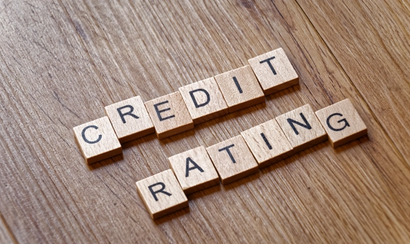Refinancing Your Mortgage: Costs, Fees & Break-Even
Written by:
Marianne Hayes
Marianne Hayes
Personal Finance Writer
Marianne Hayes is a contributing writer for Own Up. She has been covering personal finance and home ownership for over a decade.
See full bio
Fact Checked by:
Mike Tassone
Mike is a Co-Founder and Chief Operating Officer of Own Up. He has expertise in all areas of residential lending, having led operations for a top 40 lender in the United States.
See full bio

Refinancing your mortgage can lead to a lower interest rate, which, in turn, can save you thousands of dollars in the long run. It can also translate to a more affordable monthly mortgage payment.
But refinancing isn't free. Upfront closing costs typically range anywhere from 2% to 5% of the loan amount, according to the National Association of Realtors.
Understanding the costs of refinancing can help you decide if it's the right financial decision for you.
What are Common Refinancing Costs?
Refinancing a mortgage can cost you some cash upfront. Loan application fees, appraisal fees, and origination fees are a few of the expenses you can expect to pay, which are known as closing costs. Fees may vary from lender to lender, so it’s important to compare costs before deciding on a lender.
Below is a more detailed breakdown of different refinancing costs and what they entail.
1. Loan Application Fee
This fee covers the initial processing cost of your refinance application. Lenders usually tack on this fee to cover their administrative costs. The application fee varies, and some lenders don't charge one at all. But in some cases, it could cost upwards of $550. The application fee is usually nonrefundable.
2. Appraisal Fee
Most mortgage lenders require a home appraisal before approving a refinance loan, and the cost is generally borne by the borrower. The average range can be anywhere from $314 to $423, according to HomeAdvisor. However, appraisal waivers may be possible for government-backed loans like FHA loans, VA loans, and USDA loans. The appraisal fee is considered a “pass-through” third-party expense and lenders are not allowed to charge more than what the service provider charges.
The appraisal provides a snapshot of the home's current market value, which often plays an important role in getting approved for a mortgage. At the end of the day, the lender wants to ensure that your new mortgage loan doesn't exceed the value of the home—otherwise, it could be a liability for the lender if you default on your mortgage. If the appraisal comes in low, you may need to cover the difference out of pocket.
3. Origination Fee
If your application receives approval, your lender may charge an origination fee. This covers the cost of processing the loan from start to finish, which includes underwriting costs. The origination fee can vary from one lender to the next, but it typically ranges from 0.5% to 1% of the loan amount. In some cases, the lender may charge a flat fee.
4. Title Search and Insurance
Title services go hand in hand with refinancing a mortgage. That typically involves:
- Running a title search: A third-party title company will verify the home's ownership history and ensure there are no liens on the property.
- Securing title insurance: Title insurance helps protect you from potential ownership issues, which can include everything from administrative errors to fraud; however, since you are refinancing a home you already own, in this case, you likely won’t have to purchase it again. Make sure to ask your lender or mortgage advisor about whether you need to do this.
Your out-of-pocket cost to cover these title services will likely range anywhere from $700 to $900. The cost is generally a set third-party fee that your lender cannot change or mark up.
5. Miscellaneous Fees
You may also run into these additional refinance fees:
- Mortgage insurance premiums: If you have less than 20% equity in your home, your lender will likely require private mortgage insurance. The price varies, but the average cost per month is usually between $30 and $70 for every $100,000 borrowed, according to Freddie Mac.
- Recording fees: These are fees associated with recording your new mortgage with your local government. It could range from $25 to $250, depending on where you live.
- Attorney fees: You may choose to work with a lawyer to help with your mortgage refinance; expect to spend roughly $500 to $1,000.
What If You Can't Cover Your Closing Costs?
Let's say your new loan balance is $200,000 and your refinance closing costs are $8,000. If you don't have cash on hand to cover those upfront costs, you can probably roll them into your new loan. Just be aware that you'll pay interest on the closing cost amount, which can add up over the years.
For example, let's assume your interest rate is 6% and you have a 30-year mortgage term. By rolling an $8,000 closing cost into your loan, you'll pay $1,267 more in interest over the life of the mortgage.
It’s also important to note that adding closing costs to your loan can increase your loan-to-value ratio. If this ratio is higher than 80%, you will be asked to take out mortgage insurance.
How to Calculate the Break-Even Point
The break-even point is when those savings begin to offset the costs. Since refinancing a mortgage comes with fees, you'll want to run the numbers beforehand to determine if the upfront costs are worth the long-term savings. Understanding this can help you make an informed decision.
To help decide if it’s worth it to refinance, you'll want to consider the following before refinancing:
- Your estimated closing costs
- Your total savings in the long run
- Your new monthly payment
Let's say your current mortgage is $250,000 and your interest rate is 6.65%. (For simplicity, we'll exclude the cost of property taxes, homeowners’ insurance, and other monthly costs of homeownership.) Now let's assume you're considering a refinance loan that would bring your interest rate down to 6%. Your total closing costs add up to $7,500, or 3% of your loan amount.
| Original Mortgage | Mortgage After Refinance |
| Monthly Payment | $1,604.91 | $1,498.88 |
| Total Interest Paid | $327,768.38 | $289,595.47 |
| Closing Costs to Refinance | $0 | $7,500 |
| Total Cost of Loan | $577,768.38 | $289,595.47 |
In this case, refinancing would save you about $30,672 over the long term. You'd also secure a lower monthly payment. To calculate the break-even point, you'll divide your refinance loan closing costs by your monthly savings. The result is the number of months it will take to break even. If using the example above, it looks like this:
$7,500 divided by $106 = About 71 months to break even
Strategies to Reduce Refinancing Costs
Refinancing costs vary by lender and aren't set in stone. Here are some simple tips that could help reduce your total spend:
Compare Lenders
You'll want to shop around and gather multiple quotes before making such a big financial decision. Comparing interest rates, fees and customer satisfaction reviews can help you find the best refinance loan for your needs.
Negotiate Fees
You may have some wiggle room when it comes to your closing costs. Talk with your lender to see if you can negotiate your application fee, loan origination fee, and other costs. You may also be able to negotiate a lower rate with your homeowners’ insurance company.
Improve Your Credit Score
Having an excellent credit history and a strong credit score can help you qualify for the best rates and terms when refinancing a mortgage – and that can help unlock major savings. You can improve your credit by paying your bills on time, reducing high-interest debt like credit cards, and disputing any errors that may be on your credit report.
Choose the Right Loan Term
Mortgages are typically available in 15- and 30-year terms. A shorter term will give you a larger monthly payment, but you'll ultimately pay less interest. See if your budget can accommodate a shorter loan term, which would translate to a 15-year mortgage.
The Bottom Line
Refinancing your home loan can have significant financial benefits, though it's hard to avoid mortgage refinancing costs. These upfront closing costs, which typically equal 2% to 6% of the loan amount, must be paid at the closing table. But it might be possible to reduce your monthly expenses, and the cost may be well worth it if it helps you save money in the end. Just be sure to weigh the costs against the potential savings before making such an important financial decision. Doing some research on the front end and comparing your options can help you choose the best path forward.


